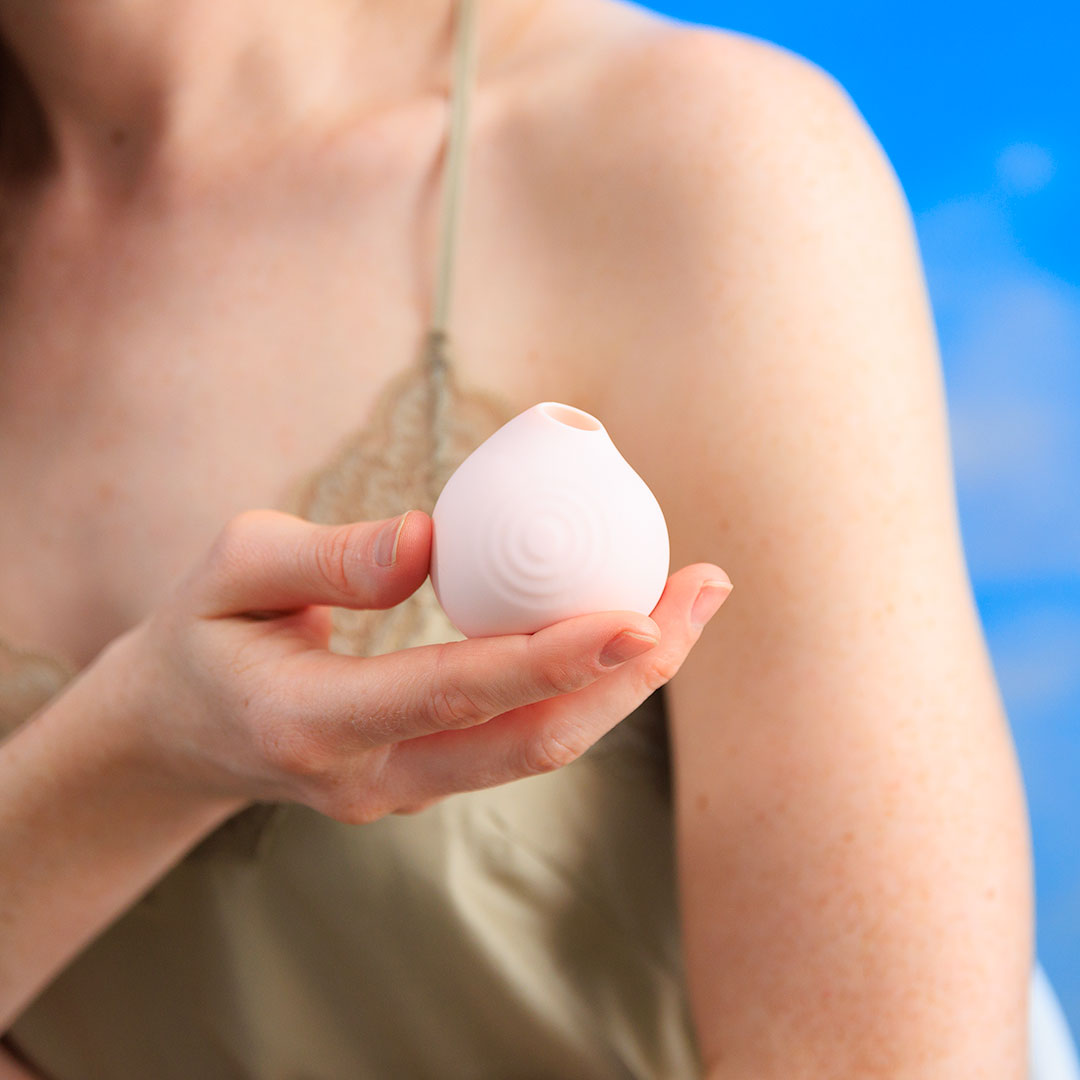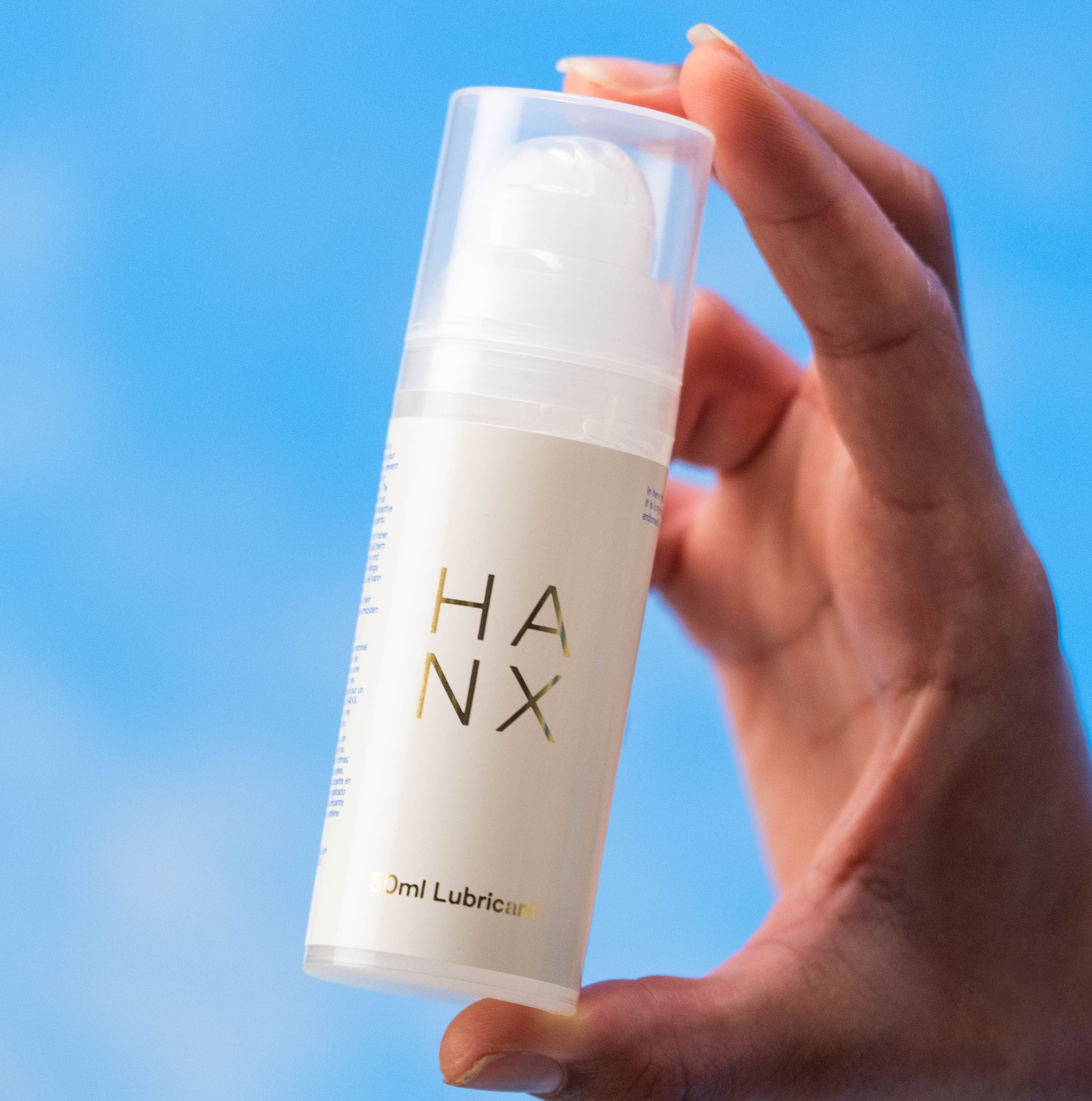Everything You Need To Know About Lichen Sclerosus
Lichen Sclerosus, one of the most misunderstood conditions in women’s health. If you've never heard of it, you're not alone. This chronic skin condition affects the vulva and other areas of the body, yet it remains woefully under-diagnosed.
We spoke to HANX co-founder and gynae-expert, Dr. Sarah Welsh about what lichen sclerosus really is, how to spot it, and most importantly, how it can be managed effectively.
What Is Lichen Sclerosus?
Lichen sclerosus (LS) is a chronic inflammatory skin condition that primarily affects the genital and anal areas, creating patches of thin, white, and sometimes wrinkled skin. While it can occur anywhere on the body, it has a particular preference for intimate areas.
"Lichen sclerosus is one of those conditions that flies under the radar in women's health education," explains Dr. Sarah Welsh. "Many women suffer in silence because they don't recognise the symptoms or feel too embarrassed to seek help. But the reality is, this is a manageable condition when properly diagnosed and treated."
The condition affects women disproportionately, females are six times as likely to be affected as males. While prevalence estimates vary, studies suggest it affects between 0.1% to 0.3% of the population, though the true numbers are likely higher due to under-diagnosis.
Recognising the Signs: What to Look For
Lichen sclerosus can be sneaky. Symptoms often develop gradually, and many women initially dismiss them as normal changes or temporary irritation. Here's what to watch for:
Early Warning Signs
-
Itching, particularly at night
-
Soreness or burning sensations
-
Pain during sex or when inserting tampons
-
Small white or pale patches on the vulva
-
Skin that feels tight or uncomfortable
As the condition progresses, you might notice:
-
Thin, crinkled, or "tissue paper-like" skin texture
-
White patches that may join together
-
Small tears or cracks in the skin
-
Changes in the shape of the vulva
-
Scarring that can affect the clitoris or vaginal opening
"The key thing to remember is that lichen sclerosus symptoms can vary dramatically between women," notes Dr. Welsh. "Some experience severe itching that keeps them awake at night, while others might only notice subtle skin changes. The important thing is to trust your body, if something feels different or uncomfortable, it's worth investigating."
Why Does Lichen Sclerosus Happen?
The frustrating truth is that we don't fully understand what causes lichen sclerosus. What we do know is that it's not contagious, it's not sexually transmitted, and it's not caused by poor hygiene.
Current research suggests several potential factors:
Autoimmune Connection
Many experts believe lichen sclerosus is an autoimmune condition, where the body's immune system mistakenly attacks healthy tissue. This theory is supported by the fact that LS can be passed down in families, with the risk of heritability as high as 10%.
Hormonal Factors
There appears to be a link with hormonal changes, particularly declining oestrogen levels. This might explain why symptoms often worsen during menopause, though lichen sclerosus can affect women of any age.
Getting the Right Diagnosis
One of the biggest challenges with lichen sclerosus is getting properly diagnosed. The condition is often misdiagnosed as thrush, eczema, or other skin conditions, leading to delays in appropriate treatment.
"I see women who've been treating themselves for recurrent thrush for months or even years, when actually they have lichen sclerosus," explains Dr. Welsh. "A proper examination by a healthcare provider who understands vulvar conditions is crucial for accurate diagnosis."
Your doctor will likely:
-
Examine the affected area visually
-
Ask about your symptoms and medical history
-
Possibly take a small tissue sample (biopsy) to confirm the diagnosis
-
Rule out other conditions with similar symptoms
Don't be afraid to ask for a second opinion if you feel your concerns aren't being taken seriously. You know your body better than anyone.
Treatment Options: There Is Hope
Here's the good news: while lichen sclerosus can't be cured, it can be very effectively managed. Treatment with potent topical corticosteroids suppresses symptoms such as itching and pain in 75–90% of female patients.
First-Line Treatment: Topical Steroids
The gold standard treatment is prescription steroid ointments, typically clobetasol propionate. These powerful medications reduce inflammation and can significantly improve symptoms when used correctly.
"The key with steroid treatment is following the prescribed regimen exactly," advises Dr. Welsh. "Many women worry about using 'strong' medications on such a sensitive area, but when used appropriately under medical supervision, these treatments are both safe and highly effective."
Other Treatment Options
-
Topical calcineurin inhibitors: For maintenance therapy or when steroids aren't suitable
-
Photodynamic therapy: Light-based treatment for some cases
-
Surgical intervention: In severe cases where scarring has occurred
Long-term Management
Most women will need ongoing treatment to keep symptoms under control. This might involve:
-
Regular use of maintenance medications
-
Gentle skincare routines
-
Regular check-ups to monitor the condition
-
Lifestyle adjustments to manage symptoms
Living Well with Lichen Sclerosus
A lichen sclerosus diagnosis doesn't mean your intimate life is over. With proper treatment and management, many women continue to enjoy healthy, comfortable intimate relationships.
Practical Tips for Daily Comfort:
-
Use gentle, fragrance-free soaps and avoid harsh chemicals
-
Wear breathable, cotton underwear
-
Avoid tight-fitting clothing around the genital area
-
Use recommended moisturisers to keep skin supple
When Intimacy Becomes Challenging
If lichen sclerosus is affecting your sex life, you're not alone. Pain during intercourse is a common symptom, but there are ways to manage this:
-
Communication with your partner is crucial
-
High-quality water-based lubricants can help reduce friction
-
Different positions or techniques might be more comfortable
-
All-natural condoms that don’t contain any chemicals that could exacerbate irritation
-
Treatment can often restore comfort during intimacy
"Sexual health is an important part of overall wellbeing," emphasises Dr. Welsh. "Don't suffer in silence, these challenges can be addressed with the right support and treatment."
Breaking the Silence
Perhaps the most important thing we can do is talk about lichen sclerosus more openly. Too many women suffer alone, thinking they're the only ones experiencing these symptoms or feeling too embarrassed to seek help.
"Every woman deserves to feel comfortable and confident in her own skin," says Dr. Welsh. "Lichen sclerosus is a medical condition like any other, it deserves proper attention, treatment, and support."
Lichen sclerosus might not be a household name, but it's a condition that affects many women throughout their lives. The combination of lack of awareness, diagnostic challenges, and the sensitive nature of the symptoms means too many women suffer unnecessarily.
But here's what we want you to take away: lichen sclerosus is manageable. With proper diagnosis, appropriate treatment, and ongoing care, most women can live comfortably with this condition. The key is getting the right support and not letting embarrassment or misconceptions prevent you from seeking help.
Want More?
-
Our in-house gynae expert talks all things vaginal thrush and how to handle it.
-
Dive deep into the relationship between vaginal microbiome and BV. Read on.
-
Struggling with soreness and irritation after sex? Try our best-selling all natural condoms, gynae-designed and made with you in mind.






















